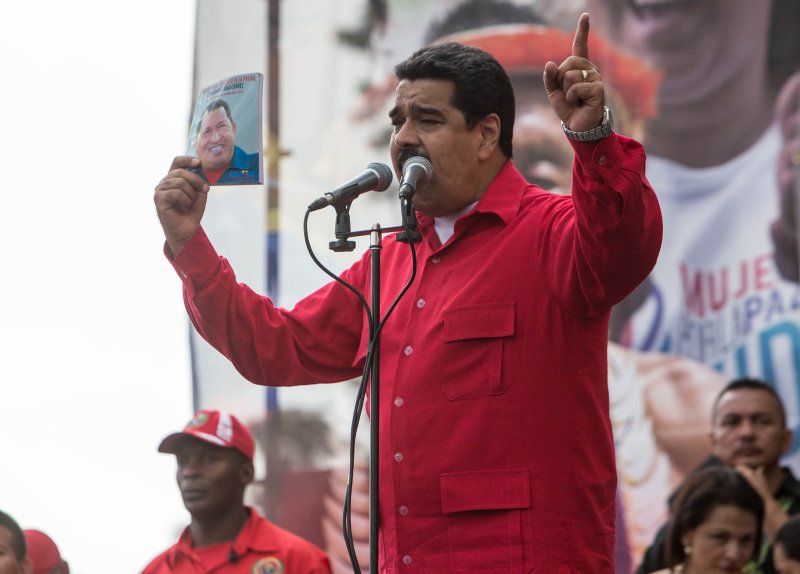Washington still weighing its options after Venezuela's President Nicolas Maduro agrees to an election delay to give opposition parties more time to campaign. File photo by Cristian Hernández/EPA.
March 2 (UPI) -- All options are on the table, including sanctions, when considering tools to coerce Venezuela into following constitutional lines, the U.S. government said.
Venezuela is a member of the Organization of Petroleum Exporting Countries, but has been hobbled by sanctions pressures and internal political fissures. Total production in January averaged 1.6 million barrels per day, down about 50,000 bpd from the previous month and a half million bpd less than its average from 2016.
Washington already imposed sanctions on the Venezuelan government and military officials in December in response to allegations of corruption and repression under the administration of President Nicolas Maduro. New oil-related sanctions would strike a severe blow to an economy where inflation is running out of control.
High debt and U.S. sanctions are limiting financing for the state oil company, Petróleos de Venezuela, or PDVSA.
Venezuela's ruling United Socialist Party agreed this week to delay presidential elections until May 20 as part of a deal with several opposition parties to give them more time to campaign. The previous election date was April 22, earlier than expected and criticized as a way to fracture parties running in opposition of the ruling party, also known as the PSUV.
The delay also is meant to give more Venezuelans, including those living abroad, time to register to vote, as well as to form a team of election observers from the United Nations.
Heather Nauert, a spokeswoman for the U.S. State Department, said after the election announcement that Washington was still considering its options for dealing with Venezuela.
"We have said we are considering all options to restore democracy to Venezuela, including individual and potentially financial sanctions," she told reporters.
According to the International Monetary Fund, inflation in Venezuela could increase by as much as 13,000 percent this year. Real gross domestic product is projected to fall by about 15 percent for a cumulative GDP decline of almost 50 percent since 2013.
On a tour of Latin America in early February, U.S. Secretary of State Rex Tillerson expressed mounting concern about political affairs in Venezuela. Maduro, widely criticized from Washington for his stance on democracy, is up for re-election this year and Tillerson openly questioned the durability of his leadership.















